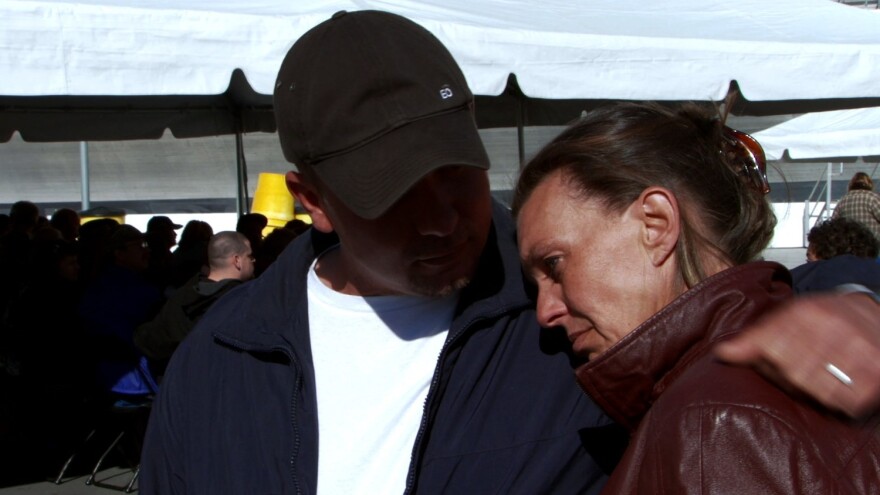What happens when you break a leg and you live hundreds of miles from the nearest hospital? Or when you can't afford to get a new pair of glasses because you don't have health insurance?
For many, the answer is to go without help. That's why the organization Remote Area Medical was conceived. As we've reported before, the team travels across the United States and abroad to provide health care to those in need. That's a lot of people — about 16 percent of Americans are uninsured, according to the latest Gallup poll.
The plight of those without access to health care is the focus of a new documentary, Remote Area Medical. The film, to be released nationwide on Saturday, follows a team of doctors, dentists and nurses over three days in April 2012 as they treated thousands of people at the Bristol Motor Speedway in Tennessee.
Shots spoke to Stan Brock, the founder of Remote Area Medical, about the state of U.S. health care and why his organization isn't going away. This is an edited version of the conversation.
Your charity started out in the upper Amazon. Why did you decide to bring it to the United States?
I got a call from one of the poorest counties in the nation, Hancock County, Tenn. — little place called Sneedville which at the time had to close their little hospital and the only dentist in the neighborhood had left town. And so I got a call, "Hey, can you come here and help us out?"
I remember putting a couple of heavy dental chairs that we borrowed in the back of a pickup truck and going up to Sneedville and there was quite a long line of people who needed help. And about a week after that, I got another call from the next county over, and pretty soon we were doing stuff in Tennessee and Kentucky on a regular basis.
And it's just grown from there. So now 90-odd percent of what we do is in the United States. We've done 744 of these special expeditions, as we call them, all over the country: Los Angeles, recently Seattle, and we hoped also in New York but unfortunately, that's not gonna come to pass. So the need is everywhere.
How do you choose which medical specialties to provide?
Because of our experience overseas we knew there was a need for dentistry and for eyeglasses and eye exams. So when we started doing it in the United States, pretty well from the beginning we were providing all three of those services.
The need for the dentistry and the vision is so dramatic that we have a great difficulty actually persuading the patients to take advantage of the medical services we offer in terms of diabetic care and women's health, because they're so preoccupied with the need to get their teeth fixed and to do something about their eyesight.
Why is it so hard for people in the United States to get regular health care?
Unfortunately, the price of health care in the United States is incredibly high. Should it be that high? I think not. Look at the low end of the spectrum, which of course is what we do. Now, for years we've calculated that for about $15, we can do pretty much everything that we need to do inside your mouth. In other words, if you've got a lot of teeth that have to be fixed, we still [are] going to be able to do that for about $15.

And the same thing for giving you a full eye exam as good as one that you'd get at a doctor's office and make you a prescription pair of eyeglasses, also for $15, excluding the cost of fuel. Fuel is our biggest expense. We have to drive vehicles clear across the United States. But it runs at about $15 or so for a particular treatment.
Now bear in mind, that's really the cost of the supplies because the people doing the treatment are doing this absolutely free, out of the goodness of their heart. But it's a long way from some of these incredibly high bills that you see coming out of hospitals and doctor's offices that are 10, 15, 100 times more than the cost I just described. So there's something totally out of whack here.
What's the biggest obstacle to your mission?
For some extraordinary reason that I've never been able to understand, a doctor, a dentist, a nurse, even a veterinarian licensed in one state who's gone through the same curriculum that you would in any other state is not allowed to cross state lines to provide free care to the underserved, at no cost to the government and no cost to the taxpayer.
We've now managed to get 11 states to change the law, but they need to change the law on a federal level so that doctors can freely cross state lines to provide free care for the underserved. I've been urging Congress in several visits that they need to do this, and I think it needs a sort of swell of interest on the part of the public to make this happen.
Copyright 2021 NPR. To see more, visit https://www.npr.org.


